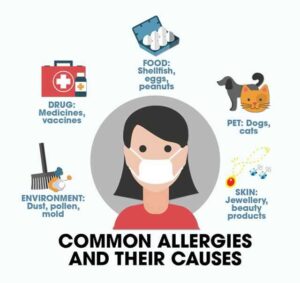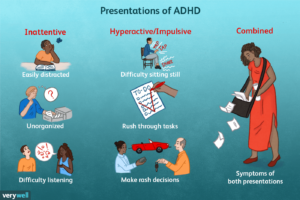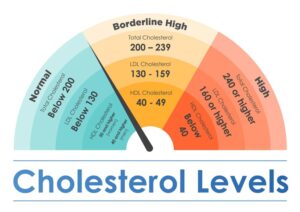Everything You Need to Know About Alzheimer Disease

Everything You Need to Know About Alzheimer Disease
What is Alzheimer’s disease?
Alzheimer’s disease is a progressive form of dementia. Dementia is a broader term for conditions caused by brain injuries or diseases that negatively affect memory, thinking, and behavior. These changes interfere with daily living.
According to the Alzheimer’s Association, Alzheimer’s disease accounts for 60 to 80 percent of dementia cases. Most people with the disease get a diagnosis after age 65. If it’s diagnosed before then, it’s generally referred to as early onset Alzheimer’s disease.
There’s no cure for Alzheimer’s, but there are treatments that can slow the progression of the disease. Learn more about the basics of Alzheimer’s disease.
Alzheimer’s facts
Although many people have heard of Alzheimer’s disease, some aren’t sure exactly what it is. Here are some facts about this condition:
- Alzheimer’s disease is a chronic ongoing condition.
- Its symptoms come on gradually and the effects on the brain are degenerative, meaning they cause slow decline.
- There’s no cure for Alzheimer’s but treatment can help slow the progression of the disease and may improve quality of life.
- Anyone can get Alzheimer’s disease but certain people are at higher risk for it. This includes people over age 65 and those with a family history of the condition.
- Alzheimer’s and dementia aren’t the same thing. Alzheimer’s disease is a type of dementia.
- There’s no single expected outcome for people with Alzheimer’s. Some people live a long time with mild cognitive damage, while others experience a more rapid onset of symptoms and quicker disease progression.
Dementia vs. Alzheimer’s
The terms “dementia” and “Alzheimer’s” are sometimes used interchangeably. However, these two conditions aren’t the same. Alzheimer’s is a type of dementia.
Dementia is a broader term for conditions with symptoms relating to memory loss such as forgetfulness and confusion. Dementia includes more specific conditions, such as Alzheimer’s disease, Parkinson’s disease, traumatic brain injury, and others, which can cause these symptoms.
Causes, symptoms, and treatments can be different for these diseases.
Alzheimer’s disease causes and risk factors
Experts haven’t determined a single cause of Alzheimer’s disease but they have identified certain risk factors, including:
- Age. Most people who develop Alzheimer’s disease are 65 years of age or older.
- Family history. If you have an immediate family member who has developed the condition, you’re more likely to get it.
- Genetics. Certain genes have been linked to Alzheimer’s disease.
Having one or more of these risk factors doesn’t mean that you’ll develop Alzheimer’s disease. It simply raises your risk level.
To learn more about your personal risk of developing the condition, talk with your doctor.
Alzheimer’s and genetics
While there’s no one identifiable cause of Alzheimer’s, genetics may play a key role. One gene in particular is of interest to researchers. Apolipoprotein E (APOE) is a gene that’s been linked to the onset of Alzheimer’s symptoms in older adults.
Blood tests can determine if you have this gene, which increases your risk of developing Alzheimer’s. Keep in mind that even if someone has this gene, they may not get Alzheimer’s.
The opposite is also true: Someone may still get Alzheimer’s even if they don’t have the gene. There’s no way to tell for sure whether someone will develop Alzheimer’s.
Other genes could also increase risk of Alzheimer’s and early onset Alzheimer’s.
Symptoms of Alzheimer’s disease
Everyone has episodes of forgetfulness from time to time. But people with Alzheimer’s disease display certain ongoing behaviors and symptoms that worsen over time. These can include:
- memory loss affecting daily activities, such as an ability to keep appointments
- trouble with familiar tasks, such as using a microwave
- difficulties with problem-solving
- trouble with speech or writing
- becoming disoriented about times or places
- decreased judgment
- decreased personal hygiene
- mood and personality changes
- withdrawal from friends, family, and community
Symptoms change according to the stage of the disease.
Alzheimer’s stages
Alzheimer’s is a progressive disease, which means the symptoms will gradually worsen over time. Alzheimer’s is broken down into seven stages:
- Stage 1. There are no symptoms at this stage but there might be an early diagnosis based on family history.
- Stage 2. The earliest symptoms appear, such as forgetfulness.
- Stage 3. Mild physical and mental impairments appear, such as reduced memory and concentration. These may only be noticeable by someone very close to the person.
- Stage 4. Alzheimer’s is often diagnosed at this stage, but it’s still considered mild. Memory loss and the inability to perform everyday tasks is evident.
- Stage 5. Moderate to severe symptoms require help from loved ones or caregivers.
- Stage 6. At this stage, a person with Alzheimer’s may need help with basic tasks, such as eating and putting on clothes.
- Stage 7. This is the most severe and final stage of Alzheimer’s. There may be a loss of speech and facial expressions.
As a person progresses through these stages, they’ll need increasing support from a caregiver.
Early onset Alzheimer’s
Alzheimer’s typically affects people ages 65 years and older. However, it can occur in people as early as their 40s or 50s. This is called early onset, or younger onset, Alzheimer’s. This type of Alzheimer’s affects about 5 percent of all people with the condition.
Symptoms of early onset Alzheimer’s can include mild memory loss and trouble concentrating or finishing everyday tasks. It can be hard to find the right words, and you may lose track of time. Mild vision problems, such as trouble telling distances, can also occur.
Certain people are at greater risk of developing this condition.
Diagnosing Alzheimer’s disease
The only definitive way to diagnose someone with Alzheimer’s disease is to examine their brain tissue after death. But your doctor can use other examinations and tests to assess your mental abilities, diagnose dementia, and rule out other conditions.
They’ll likely start by taking a medical history. They may ask about your:
- symptoms
- family medical history
- other current or past health conditions
- current or past medications
- diet, alcohol intake, or other lifestyle habits
From there, your doctor will likely do several tests to help determine if you have Alzheimer’s disease.
Alzheimer’s tests
There’s no definitive test for Alzheimer’s disease. However, your doctor will likely do several tests to determine your diagnosis. These can be mental, physical, neurological, and imaging tests.
Your doctor may start with a mental status test. This can help them assess your short-term memory, long-term memory, and orientation to place and time. For example, they may ask you:
- what day it is
- who the president is
- to remember and recall a short list of words
Next, they’ll likely conduct a physical exam. For example, they may check your blood pressure, assess your heart rate, and take your temperature. In some cases, they may collect urine or blood samples for testing in a laboratory.
Your doctor may also conduct a neurological exam to rule out other possible diagnoses, such as an acute medical issue, such as infection or stroke. During this exam, they will check your reflexes, muscle tone, and speech.
Your doctor may also order brain-imaging studies. These studies, which will create pictures of your brain, can include:
- Magnetic resonance imaging (MRI). MRIs can help pick up key markers, such as inflammation, bleeding, and structural issues.
- Computed tomography (CT) scan. CT scans take X-ray images which can help your doctor look for abnormal characteristics in your brain.
- Positron emission tomography (PET) scan. PET scan images can help your doctor detect plaque buildup. Plaque is a protein substance related to Alzheimer’s symptoms.
Other tests your doctor may do include blood tests to check for genes that may indicate you have a higher risk of Alzheimer’s disease.
Alzheimer’s medication
There’s no known cure for Alzheimer’s disease. However, your doctor can recommend medications and other treatments to help ease your symptoms and delay the progression of the disease for as long as possible.
For early to moderate Alzheimer’s, your doctor may prescribe medications such as donepezil (Aricept) or rivastigmine (Exelon). These drugs can help maintain high levels of acetylcholine in your brain. This is a type of neurotransmitter that can help aid your memory.
To treat moderate to severe Alzheimer’s, your doctor may prescribe donepezil (Aricept) or memantine (Namenda). Memantine can help block the effects of excess glutamate. Glutamate is a brain chemical that’s released in higher amounts in Alzheimer’s disease and damages brain cells.
Your doctor may also recommend antidepressants, antianxiety medications, or antipsychotics to help treat symptoms related to Alzheimer’s. These symptoms include:
- depression
- restlessness
- aggression
- agitation
- hallucinations
Other Alzheimer’s treatments
In addition to medication, lifestyle changes may help you manage your condition. For example, your doctor might develop strategies to help you or your loved one:
- focus on tasks
- limit confusion
- avoid confrontation
- get enough rest every day
- stay calm
Some people believe that vitamin E can help prevent decline in mental abilities, but studies indicate that more research is needed. Be sure to ask your doctor before taking vitamin E or any other supplements. It can interfere with some of the medications used to treat Alzheimer’s disease.
In addition to lifestyle changes, there are several alternative options you can ask your doctor about.
Preventing Alzheimer’s
Just as there’s no known cure for Alzheimer’s, there are no foolproof preventive measures. However, researchers are focusing on overall healthy lifestyle habits as ways of preventing cognitive decline.
The following measures may help:
- Quit smoking.
- Exercise regularly.
- Try cognitive training exercises.
- Eat a plant-based diet.
- Consume more antioxidants.
- Maintain an active social life.
Be sure to talk with your doctor before making any big changes in your lifestyle.
Alzheimer’s care
If you have a loved one with Alzheimer’s, you may consider becoming a caregiver. This is a full-time job that’s typically not easy but can be very rewarding.
Being a caregiver takes many skills. These include patience perhaps above all, as well as creativity, stamina, and the ability to see joy in the role of helping someone you care about live the most comfortable life they can.
As a caregiver, it’s important to take care of yourself as well as your loved one. With the responsibilities of the role can come an increased risk of stress, poor nutrition, and lack of exercise.
If you choose to assume the role of caregiver, you may need to enlist the help of professional caregivers as well as family members to help.
Alzheimer’s statistics
The statistics surrounding Alzheimer’s disease are daunting.
- According to the Centers for Disease Control and Prevention (CDC), Alzheimer’s is the sixth most common cause of death among U.S. adults. It ranks fifth among causes of death for people 65 years and older.
- A study found that 4.7 million Americans over the age of 65 years had Alzheimer’s disease in 2010. Those researchers projected that by 2050, there will be 13.8 million Americans with Alzheimer’s.
- The CDC estimates that over 90 percentTrusted Source of people with Alzheimer’s don’t see any symptoms until they’re over 60 years old.
- Alzheimer’s is an expensive disease. According to the CDC, about $259 billionTrusted Source was spent on Alzheimer’s and dementia care costs in the United States in 2017.
The takeaway
Alzheimer’s is a complicated disease in which there are many unknowns. What is known is that the condition worsens over time, but treatment can help delay symptoms and improve your quality of life.
If you think you or a loved one may have Alzheimer’s, your first step is to talk with your doctor. They can help make a diagnosis, discuss what you can expect, and help connect you with services and support. If you’re interested, they can also give you information about taking part in clinical trials.








